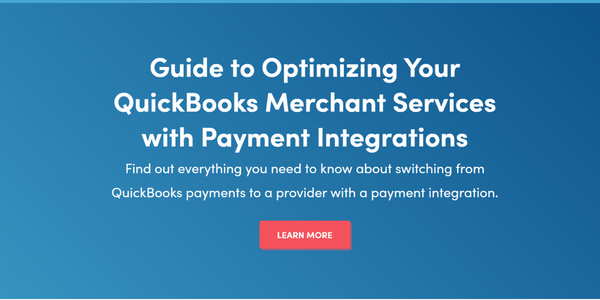If you’re using QuickBooks to manage your company’s finances, you know that it’s a convenient way to track expenses, manage your books, and even accept payments. However, you’ve probably also noticed that the fees you pay are higher than you’d like.
At CardChamp, we understand that keeping expenses down is a priority for small and medium-sized businesses. Our question to you is this:
Are you overpaying on your QuickBooks payment fees?
Let’s talk about the usual fees and why we think there’s a better way to do business.
Credit Card Statistics
It wasn’t that long ago that using a credit card was the exception and not the rule. That’s changed. Here are some credit card statistics that underscore the importance of finding a credit card payment solution that’s affordable:
- 54% of consumers say they prefer using a credit card for purchases
- More than half of all credit card users use a credit card for everyday spending
- Small business credit cards account for approximately $430 billion in spending, a number that’s expected to increase to more than $600 billion by 2022
- 67% of small business owners have a business credit card, and approximately 24% use their credit cards for all purchases
- Most businesses use credit cards for convenience and not financing
Whether you’re dealing directly with consumers or in the B2B market, accepting credit cards is not optional. It’s essential. In fact, not accepting them could drive customers away and negatively impact your bottom line.
Average Credit Card Processing Fees
The only way to know if you’re overpaying on your QuickBooks payments fees is to look at what you’re paying now and compare it to the other options that are available. Here’s what you need to know.
Merchants who accept credit cards must pay several kinds of fees. These include interchange fees, assessment fees, and processing fees. The fees to to three different recipients:
- The bank or credit union that issued the credit card
- The credit card’s payment network
- The payment processor
In most cases, the fees break down like this:
- The interchange fee is usually between 1.15% plus a $0.05 fee at the low end and 3.15% plus a $0.10 fee at the high end
- The assessment fee is usually between 0.10% and 0.15% per transaction
- The processing fee is dependent upon the payment processor. The fee may be a percentage of the transaction or a flat fee, or a combination of the two.
The first two fees, the interchange fee and the assessment fee, are not negotiable (but may be adjusted depending on how the payment is processed). The former goes to the bank that issued the credit card and the latter, to the payment network (aka Visa or Discover.)
The third fee is where there’s the potential to save money. You can choose the company you use to process your credit card fees. There can be significant differences between companies. Choose well and you can save yourself a lot of money on credit card transactions.
Are You Paying Too Much for QuickBooks Payments Fees?
We can’t tell you if your fees are too high, but we can tell you how to figure out if you’re overpaying for QuickBooks credit card fees.
The first step is to calculate what you’re paying. That may be a bit tricky if you’ve got a combination fee (say a percentage of the transaction plus a per-transaction fee) but you should get a monthly statement from the company that processes your credit card payments.
You can get an idea of your negotiable monthly costs by taking the number of credit card transactions in a month and multiplying it by your rates. Remember, the interchange and assessment fees are not negotiable. Focus on the processing fee.
If the amount you’re paying is significant - and we’re willing to bet it is - then the next step is to see what the other options are.
For example, we can say for sure that you can save money by switching to CardChamp if you’re using QuickBooks’ built in credit card processing. Those fees break down like this:
- 2.4% for swiped credit cards
- 2.9% for invoiced credit cards
- 3.4% for keyed credit cards
When you add those fees to the non-negotiable fees, you might be paying 4% or more on every credit card transaction. That’s significant and can have a big impact on your profits.
By contrast, CardChamp offers multiple pricing options to suit your company’s needs. You can choose from :
- Wholesale pricing - a monthly subscription fee plus the direct interchange fee, zero basis points, and a small transaction fee
- Free pricing - charge your clients the non-discounted price and pass the processing fees on to them, and you pay only $10 per month
- Match capital advantage - matches your existing fees and provides the immediate working capital you need
We find that most companies save about 25% on their existing fees when they switch to CardChamp.
There’s no need to overpay on your QuickBooks payment fees. CardChamp offers three pricing options to suit your needs.
Are you ready to stop overpaying for your QuickBooks payments fees? Click here to learn how CardChamp can help.





